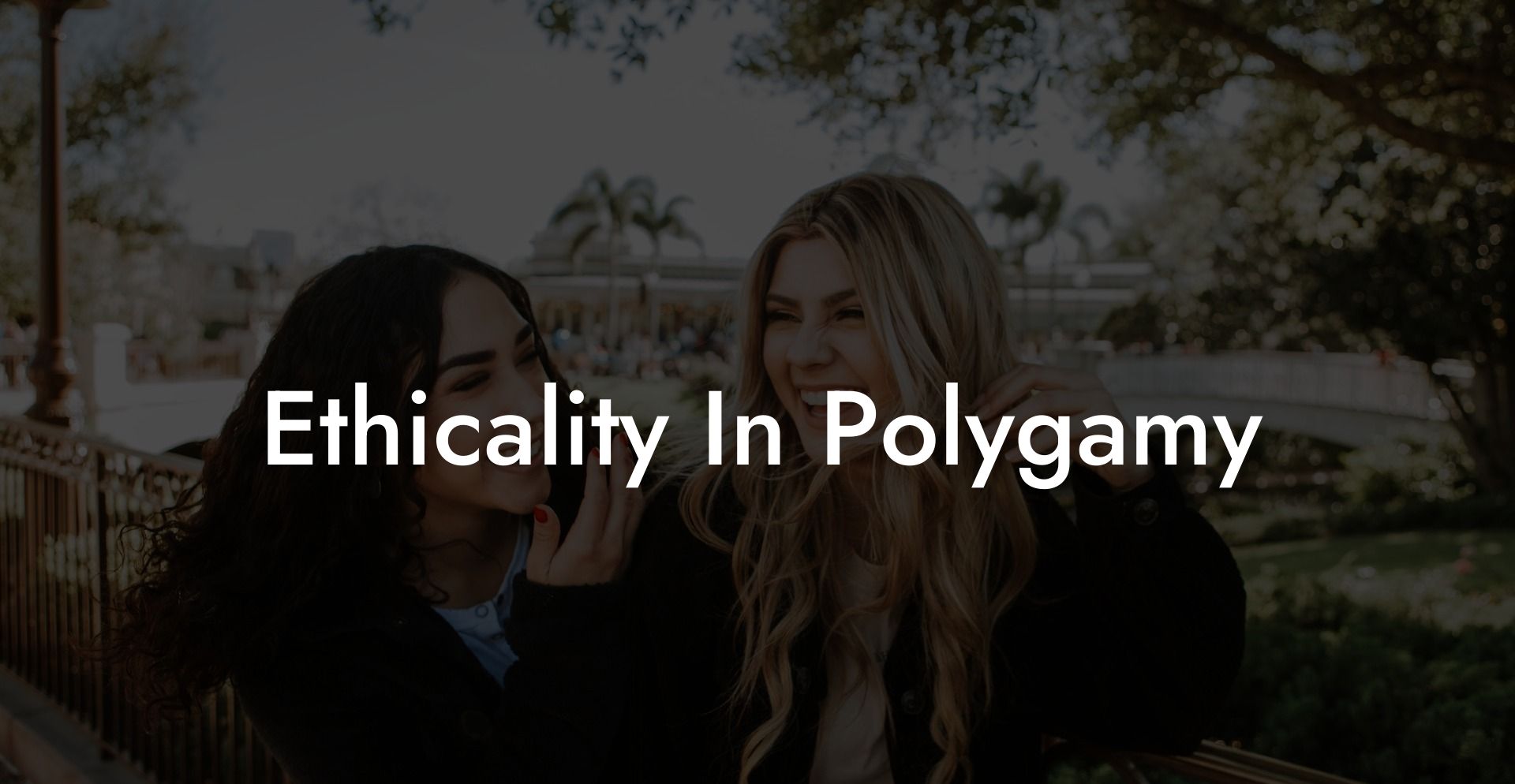As society evolves and the concept of relationships continues to diversify, the idea of ethical non-monogamy has taken shape. Polygamy, more specifically polyamory, has emerged as one of these alternative forms of relationships. As we explore this topic further, let's dive into the ethical implications of polygamy and how to conscientiously navigate through its complexities, ensuring the well-being and happiness of everyone involved.
Ethicality In Polygamy Table of Contents
What is Polygamy and Ethical Non-Monogamy?
Polygamy is the practice of having more than one partner in a relationship or marriage. It usually involves a single individual marrying or dating multiple partners, with all of them knowing and consenting to the arrangement. Polyamory, a form of polygamy, emphasizes the emotional aspect of relationships, allowing people to develop deep and meaningful connections with multiple partners. In both polygamy and polyamory, the central tenet is informed consent of everyone involved, ensuring that nobody is left in the dark or betrayed.
Ethical non-monogamy is a broader term that encompasses polygamy, polyamory, and other non-exclusive relationship styles. It emphasizes the importance of consent, communication, and respect in any non-monogamous arrangement. To be ethical in a polygamous relationship, you must be committed to honest communication, emotional support, and mutual understanding.
Key Principles for Ethical Polygamy
1. Open Communication
The foundation of any successful polygamous relationship is communication. Each partner needs to clearly express their boundaries, desires, and insecurities. Honest discussions about emotions, potential pitfalls, and relationship dynamics are essential for maintaining an ethical and healthy environment.
2. Informed Consent
All partners in a polygamous relationship must provide informed consent, meaning they understand the nature of the relationship and willingly enter into it. Nobody should feel coerced or manipulated into accepting the arrangement, and the rules should be clearly defined from the outset.
3. Respect and Trust
Respect and trust go hand in hand when navigating the complexities of polygamy. Respecting each partner's boundaries and understanding their feelings ensures that everyone's needs are considered equally. Trust, on the other hand, allows for confidence in decision-making and security in the relationship.
4. Emotional Support
Emotional support is a key element of any ethical relationship, polygamous or otherwise. In a polygamous relationship, this support can come from multiple partners, creating a strong, interconnected support network. It is important for each partner to be understanding, compassionate, and empathetic to the emotional well-being of others in the relationship.
5. Balance and Fairness
It is essential for partners to work towards a balance in their relationships and ensure that everyone's needs are met. While it may not always be possible to split time and attention evenly, it is crucial to work towards a sense of fairness and avoid neglecting any one partner.
Ethicality In Polygamy Example:
Jane, John, and Alice are in a polygamous relationship together. They began their journey as friends, openly discussing the topic and their interest in exploring it further. Understanding the importance of communication, they set boundaries and clarified their desires for the relationship. Each person willingly entered into this arrangement and provided their informed consent.
As they navigate this relationship, they prioritize trust and respect, constantly checking in with each other to ensure that feelings and emotions are understood. They work as a supportive unit, and when conflicts arise, they engage in open, honest conversations to resolve them.
They understand that balancing time and attention can be difficult, but together, they strive to ensure each partner feels valued and heard. Through their shared commitment to ethical polygamy, Jane, John, and Alice continue to build a strong, healthy, and nurturing relationship.
Entering into a polygamous or polyamorous relationship can be a fulfilling and enlightening experience. By prioritizing ethical practices and understanding the key principles for a successful non-monogamous relationship, you and your partners can foster a thriving and nurturing environment. Remember, open communication, informed consent, respect, trust, emotional support, and fairness are the cornerstones of ethical polygamy. If you've found this guide helpful, be sure to share it with others and explore more articles on non-monogamy, monogamy, and polyamory at The Monogamy Experiment.













